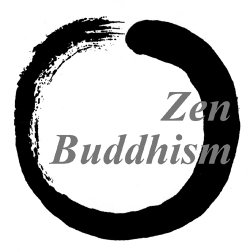 The main focus that I have noticed with this practice is attaining enlightenment through your own personal experiences. Which basically means everybody has there own story or own way of getting were they want to be in life and to reach enlightenment. A perfect way to explain this is with the quote “to each his own” because that’s basically what your doing your finding your own way to enlightenment and just use rough guidelines to help you start your own path to enlightenment.
The main focus that I have noticed with this practice is attaining enlightenment through your own personal experiences. Which basically means everybody has there own story or own way of getting were they want to be in life and to reach enlightenment. A perfect way to explain this is with the quote “to each his own” because that’s basically what your doing your finding your own way to enlightenment and just use rough guidelines to help you start your own path to enlightenment.
“Zen Buddhism is originated in China with the teachings of the monk Bodhidharma. Zen Buddhism treats zazen meditation and daily practice as essential for attaining Enlightenment.”


